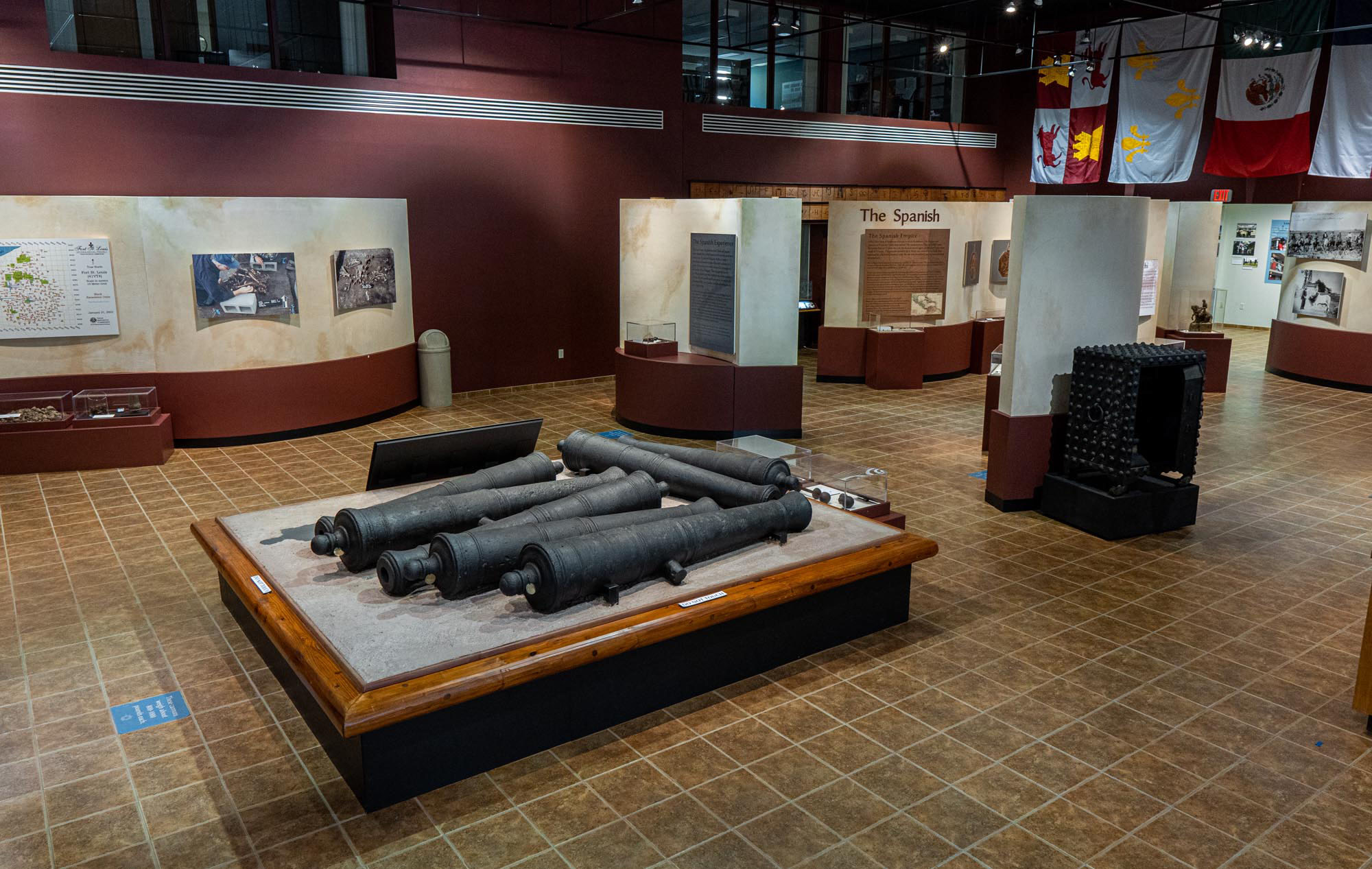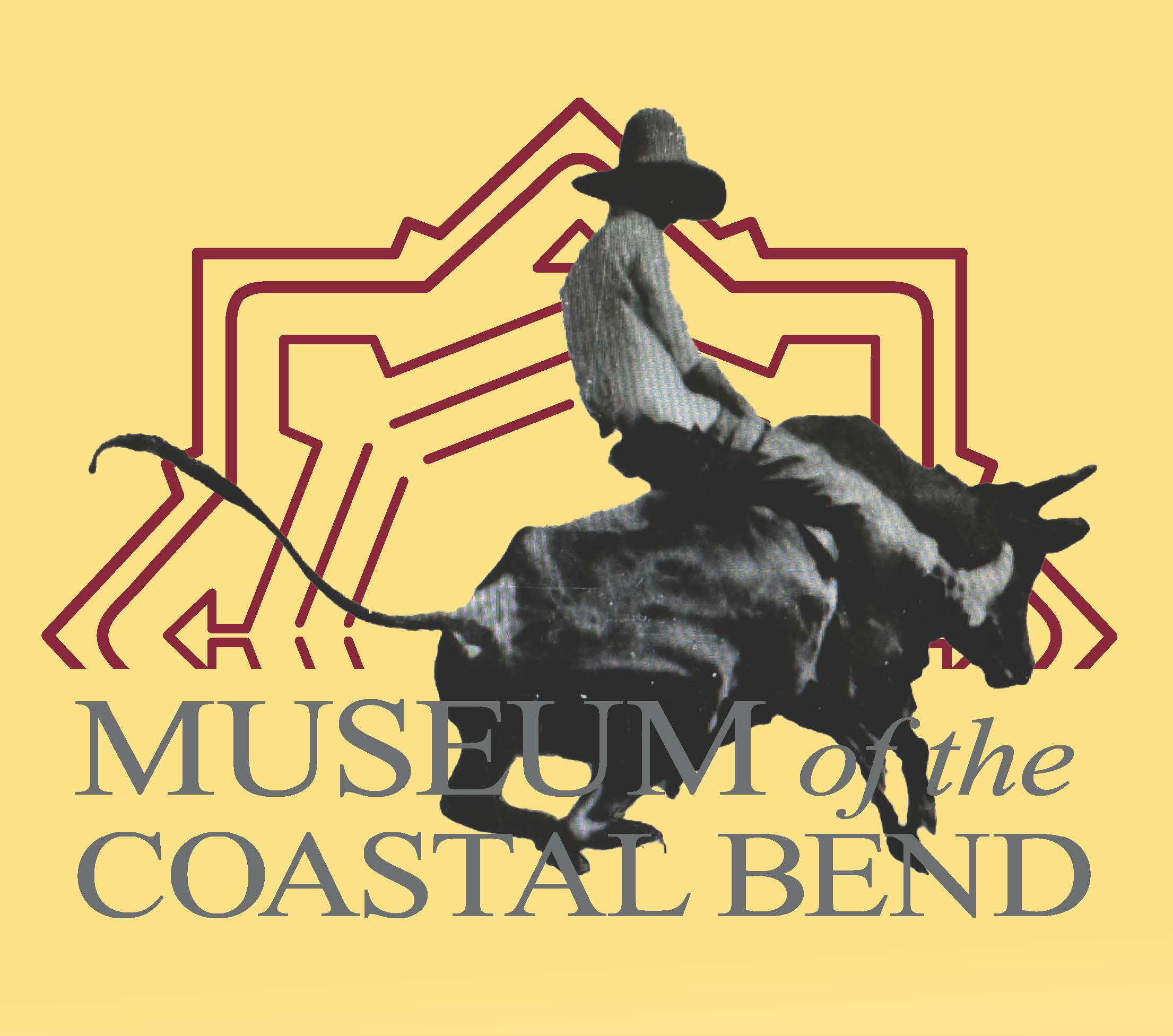Permanent Exhibits
 Where Texas History Began
Where Texas History Began
Our permanent exhibit examines the last 13,000 years of Texas history, from the first inhabitants of the Coastal Bend region through the French, Spanish, and Mexican colonial efforts, up to the range of diverse influences that have created the modern
Texan culture. The focal point in the Museum’s gallery is the exhibit of cannons brought to Texas by the French explorer La Salle. The Museum is the repository for artifacts recovered from the archaeological excavation of the French colony, Fort St. Louis.
View exhibits about the Spanish Legacy in the Coastal Bend to discover early trade routes of Native Americans and European explorers. Examine Mexican colonization and the Texas Revolution through the experiences of Victoria’s founders and citizens.
The
museum’s Virtual Exhibit provides an overview of permanent exhibit content, as well as
images of some of the artifacts that you’ll see during your in-person visit.
Where Texas Ranching Began 
In the Coastal Bend of Texas, a unique way of life originated that bound together people, animals, and land. Introduced by Spanish missionaries, shaped by Indian and Mestizo vaqueros, strengthened by Mexican colonists, and transformed by American ranchers, ranching took root here. The Coastal Bend is where Texas ranching began, where it evolved through diverse cultures, and where it still lives today. View the permanent exhibit in the newly constructed Borchers Leon Exhibit Hall.
Where Texas Ranching Began is being constructed as a public build, with components being installed and opened incrementally through 2026. The exhibit has been chronologically divided into four parts that will wrap around the perimeter of the gallery, surrounding the multi-purpose space.
The first component, La Mision, opened in October 2024. The first Texas cattle kingdom was the ranch of Mission Espíritu Santo. Between the San Antonio and Guadalupe Rivers, the Spanish built a way of life that still defines Texas today. Beginning in May 2024, visitors to the museum watched Spanish mission wall construction, an effort led by an artist and natural builder from the Victoria area. The mission wall was applied as a faux finish over sheetrock walls in the ranching exhibit entry, representative of the Spanish missions in the Coastal Bend where Texas ranching originated. The topics of ranching legacy, mission life, and the unique circumstances of land, stock, and people are contextualized in the exhibit and demonstrated with artifacts from archaeological excavations and regional private collections. Artifacts include 17th century Spanish stirrups and spurs, a Spanish copper chocolatera, and a desjarretadera (hocking knife).
The second component, Vaquero, opened in April 2025. Vaquero examines early cowboys and the development of ranching techniques for cattle and mustang herds. The topics of cowboy life, longhorns, mustangs, livestock taxes, and early land grants are contextualized in the exhibit and demonstrated with artifacts from private and institutional collections. Visitors will see an early 1800's sombrero and vaquero attire on loan from the Panhandle Plains Historical Museum, as well as whips and quirts from the MCB collection.
The remaining two components are scheduled to open in April 2026.
COMPONENT 3 Flags over the Coastal Bend changed from Spain, Mexico, Texas, and lastly to the United States. The development of industry and towns brought newcomers and their unique skills to the Coastal Bend as ranching remained a defining way of life.
COMPONENT 4 Following the American Civil War, ranchers from the Coastal Bend drove their cattle north to Kansas and helped rebuild their war-torn communities. Their legacy continued with ranching industry innovations such as barbed wire, windmills, railroads, improvement of cattle breeds, and the arrival of oil.
Group Tours
Teacher Resources at MCB
Want a piece of MCB? Visit our store page.